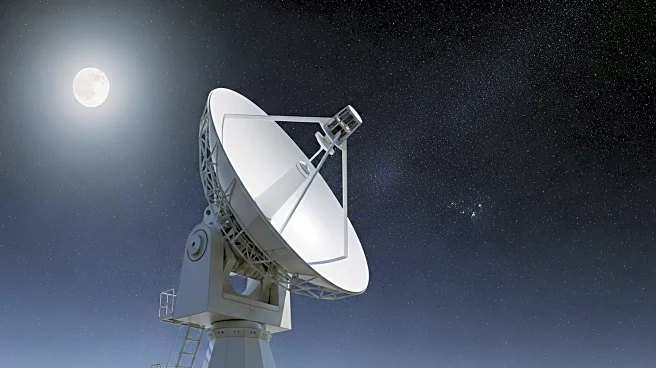What's Happening?
The National Hockey League has announced its 2025-26 broadcast schedule, which will feature 43 games available live in prime time for European audiences. The broadcasts, branded as NHL Saturday and NHL Sunday, will begin on October 11 with a match between the Los Angeles Kings and the Winnipeg Jets. The schedule includes games featuring prominent NHL stars such as Alex Ovechkin, Sidney Crosby, and Connor Bedard. The initiative aims to enhance the viewing experience for European fans by providing game feeds tailored specifically for them, including enhanced brand visibility for international partners.
Why It's Important?
This development is significant as it reflects the NHL's commitment to expanding its international reach and engaging with a broader audience. By offering prime time broadcasts in Europe, the league is tapping into a growing market of hockey enthusiasts outside North America. This move could lead to increased viewership and fan engagement, potentially boosting the league's global presence and revenue. The initiative also highlights the NHL's strategy to leverage digital and social media platforms to connect with fans in multiple languages, further solidifying its international footprint.
What's Next?
The NHL's focus on international expansion may lead to further collaborations with media partners across Europe and other regions. As the league continues to enhance its global appeal, it might explore additional opportunities to host games or events outside North America, fostering a more inclusive and diverse fan base. Stakeholders, including teams and sponsors, are likely to benefit from increased exposure and engagement with international audiences, potentially driving new business opportunities and partnerships.
Beyond the Headlines
The NHL's strategy to cater to European audiences could have long-term implications for the sport's popularity and development in the region. By showcasing top-tier hockey talent in prime time slots, the league may inspire a new generation of players and fans, contributing to the growth of hockey as a global sport. Additionally, the emphasis on digital engagement and multilingual content reflects broader trends in sports marketing, where accessibility and inclusivity are becoming key drivers of fan engagement.









